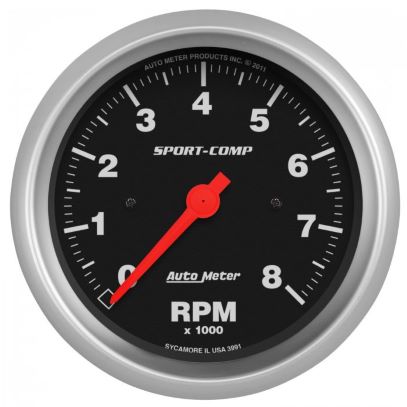Comprehensive Guide to Recognizing and Making Use Of a Tachometer Effectively
Comprehensive Guide to Recognizing and Making Use Of a Tachometer Effectively
Blog Article
Exploring the Features and Advantages of a Tachometer: A Comprehensive Overview for Cars And Truck Fanatics
From giving real-time data on engine rate to aiding in optimizing equipment changes, the tachometer serves as even more than just a dial on the control panel. Its multifaceted functions not just boost driving experience but additionally play a pivotal function in maintaining engine health and wellness and efficiency.
Recognizing the Basics of a Tachometer
In the world of automobile instrumentation, comprehending the fundamentals of a tachometer is crucial for any type of automobile enthusiast looking to dig right into the details of engine performance tracking. A tachometer, often presented on the control panel of an automobile, gauges the engine's transformations per min (RPM)
Tachometers commonly have actually a range noted in revolutions per min, with a redline showing the optimum speed at which the engine can securely operate (tachometer). This info is crucial for preventing engine damage and maximizing equipment moving for manual transmissions. In addition, tachometers can aid in diagnosing engine problems such as misfires or a failing ignition system by finding uneven RPM readings
Significance of Checking Engine Speed

Keeping track of engine speed is a crucial facet of lorry upkeep and efficiency optimization for automotive fanatics and professionals alike. The engine rate, measured in changes per min (RPM), shows exactly how quickly the engine's crankshaft is turning. By keeping a close eye on the RPM, chauffeurs can make sure that the engine is running within the ideal variety, avoiding possible damage from over-revving or stalling. Monitoring engine rate is particularly important throughout equipment changes, as it helps vehicle drivers establish the best time to transform gears for smooth acceleration and effective gas usage.
Additionally, tracking engine rate can also provide valuable understandings right into the total wellness of the automobile. On the whole, monitoring engine rate with a tachometer is a fundamental practice that can boost driving performance, lengthen engine life, and ensure a safer and extra satisfying driving experience.
Enhancing Efficiency Through Gear Shifts
Correct gear moving ensures that the engine runs within its optimum power band, allowing for smooth acceleration and improved gas economy. When moving gears, it is crucial to pay interest to the engine site here speed indicated on the tachometer.

To accomplish peak performance via equipment changes, motorists must practice smooth and timely transitions in between gears, matching engine speed with roadway speed to harness the full capacity of their car's powertrain.
Optimizing Performance With a Tachometer
Understanding the art of equipment changing in high-performance automobiles not just enhances driving experience yet likewise plays a vital function in taking full advantage of performance with a tachometer. weblink tachometer. By paying attention to the tachometer readings, vehicle drivers can optimize their gear changes to operate within the engine's most reliable array. When speeding up, shifting gears at the best RPM suggested by the tachometer can prevent the engine from overworking or underperforming, leading to boosted gas performance and general efficiency
Furthermore, a tachometer aids vehicle drivers prevent unneeded revving, try this site which not only squanders gas however likewise puts unnecessary strain on the engine. Continually keeping track of the tachometer while driving allows for smoother equipment shifts, reducing wear and tear on the transmission system gradually.

Advanced Tips for Tachometer Application
Enhancing driving accuracy via proficient tachometer interpretation is vital to maximizing automobile performance. To delve into advanced suggestions for tachometer utilization, consider integrating the use of shift lights. Change lights are aesthetic signs that brighten when it's time to change equipments based upon engine revolutions per min (RPM), permitting seamless gear adjustments without constantly keeping an eye on the tachometer. Additionally, exercising heel-and-toe downshifting strategy can be valuable when going for smoother transitions in between gears. This strategy includes utilizing both the brake and accelerator pedals simultaneously while downshifting, assisting to keep engine RPM and avoid jerky activities. Making use of a performance tachometer with personalized settings can offer real-time information customized to specific driving preferences or car modifications. By fine-tuning shift points and establishing alerting thresholds, vehicle drivers can optimize velocity and engine performance while reducing the danger of over-revving. These sophisticated strategies, when coupled with a deep understanding of tachometer analyses, can raise driving efficiency and general driving experience.
Verdict
Finally, the tachometer works as an important tool for automobile fanatics to monitor engine speed, improve efficiency with equipment changes, and make the most of performance. By recognizing the functions and advantages of a tachometer, motorists can optimize their driving experience and lengthen the life expectancy of their vehicle. Using advanced pointers for tachometer usage can further improve driving abilities and general efficiency on the roadway.
Report this page